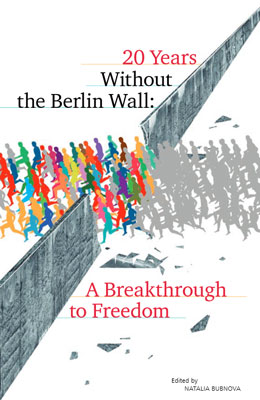Source: Moscow: Carnegie Moscow Center
 Enormous societal and political shifts twenty years ago opened prospects for a new, united Europe and put an end to the Cold War and the nuclear standoff. Despite Russia’s enormous role in this peaceful departure from totalitarianism, the country’s course in the subsequent two decades has not been so straightforward. The book focuses on the outcome of transformation in Russia and other post-communist nations, comparing Russia’s experience with that of the Central and Eastern European states.
Enormous societal and political shifts twenty years ago opened prospects for a new, united Europe and put an end to the Cold War and the nuclear standoff. Despite Russia’s enormous role in this peaceful departure from totalitarianism, the country’s course in the subsequent two decades has not been so straightforward. The book focuses on the outcome of transformation in Russia and other post-communist nations, comparing Russia’s experience with that of the Central and Eastern European states.
The book’s authors, including leading Carnegie Moscow Center experts, pose the question: what was the reason behind Russia’s stalled reforms? They argue that a policy that leads to the dismantling of civil liberties in the country and uses strong-arm tactics externally is a dead-end. While the demolition of the Berlin Wall is no guarantee of success, democratic transformations are a necessary precondition for the country’s modernization and strong, modern international profile, as well as for citizens’ welfare.

